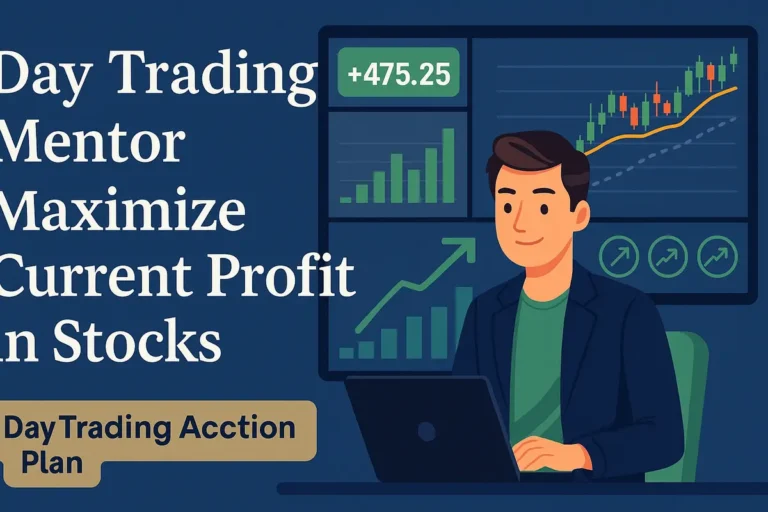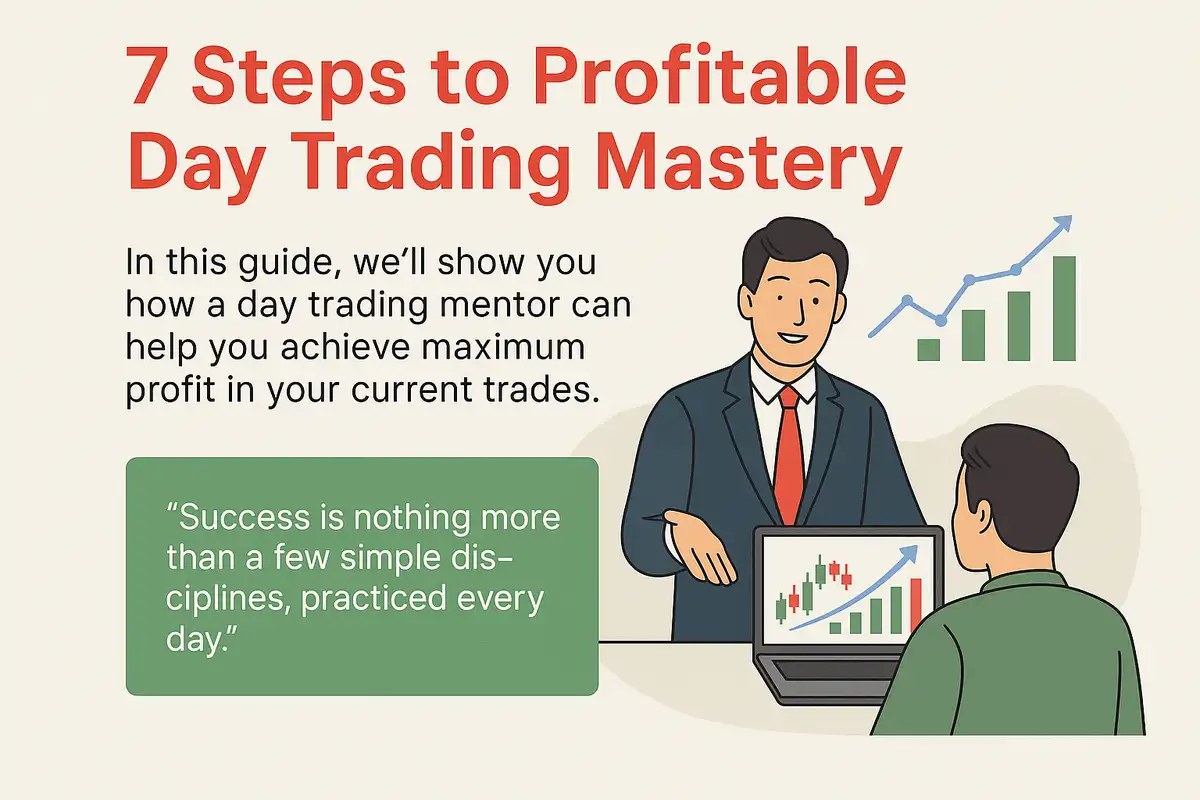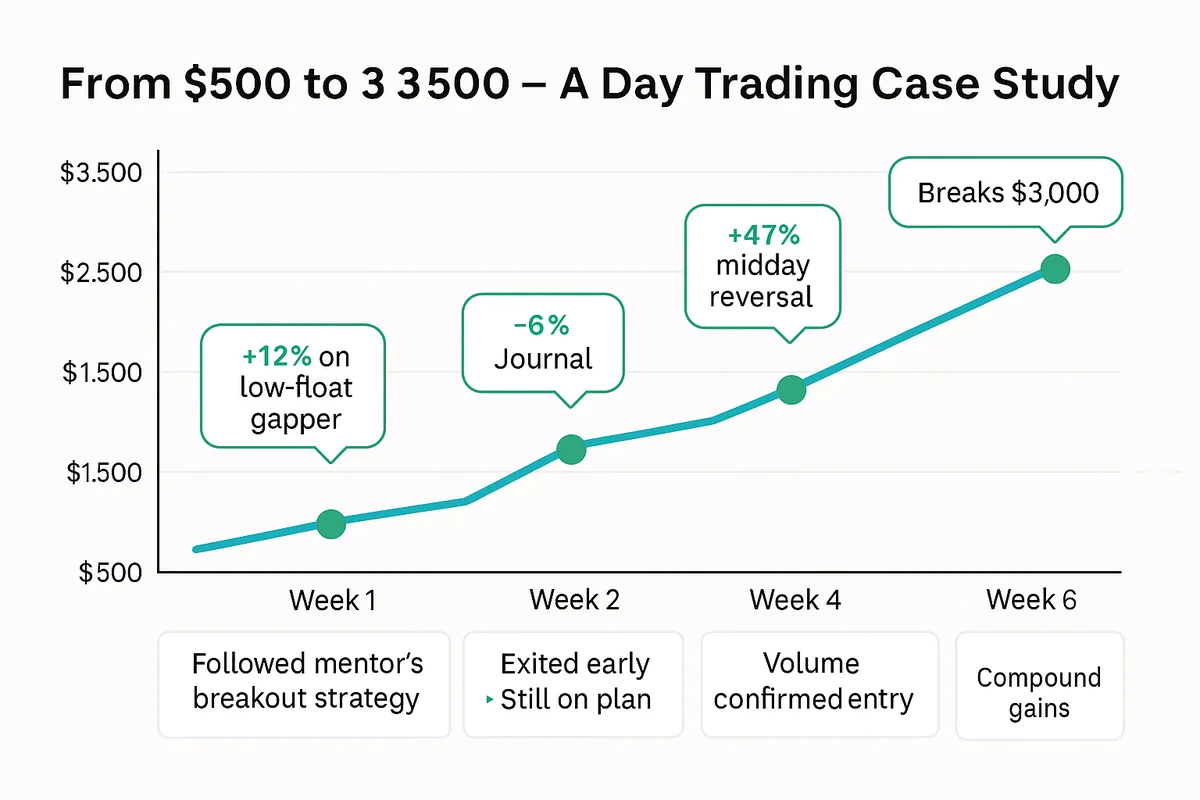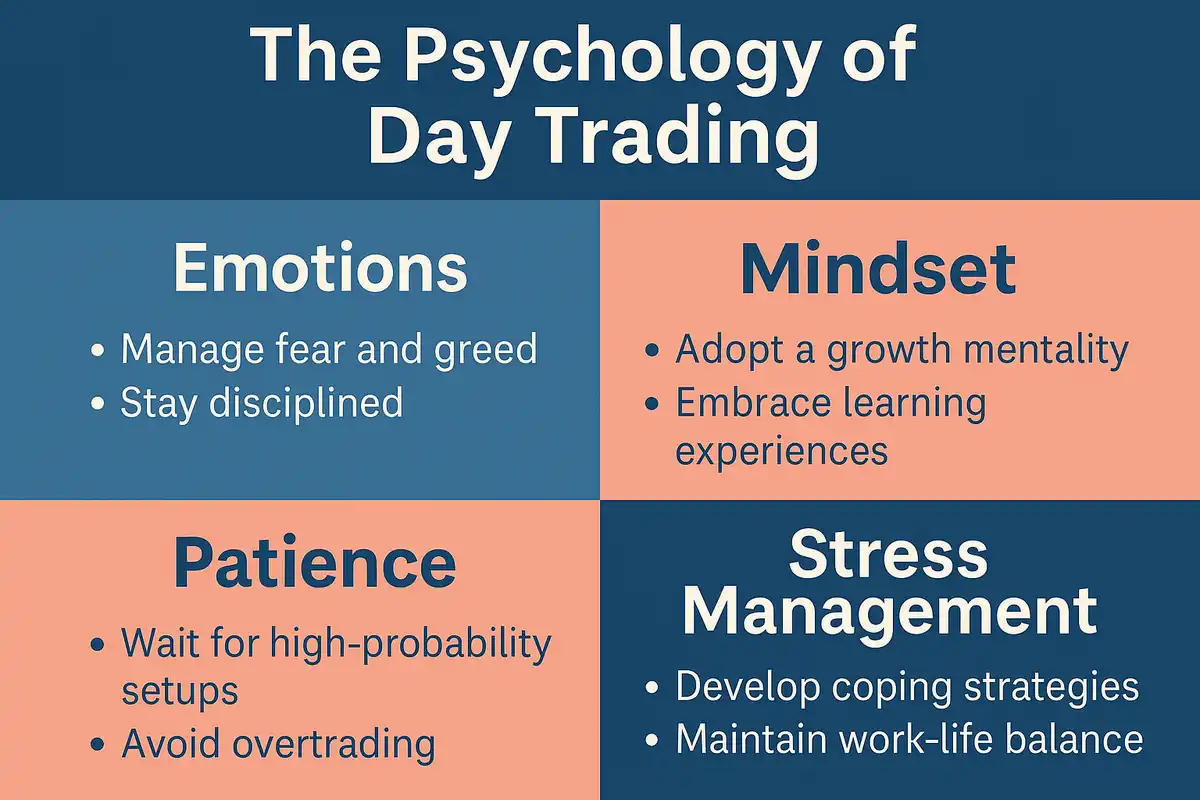
Day Trading Mentor | 3 Keys to Immediate Profit Boosts in Day Trading
Why You Need a Day Trading Mentor 💡
Day trading is fast-paced, high-risk, and brutally competitive. The margin between success and failure is razor thin — and that’s why a day trading mentor is one of the most important assets a new or struggling trader can have.
So what exactly does a mentor do? They offer live guidance, customized feedback, psychological support, and access to tested strategies. Most importantly, they eliminate wasted time and painful mistakes.
“Mentorship is the shortcut to mastery.” — Rayner Teo, Professional Trader
🚀 The Real Numbers Behind Mentorship
Did you know that 85% of day traders quit within the first year? According to a 2023 study by the Financial Industry Regulatory Authority (FINRA), the vast majority fail due to lack of structure and guidance.
But traders who work with a mentor improve their long-term consistency by up to 42%.
📈 Real-World Example
Consider a trader named Jenna, who joined our Day Trading Alerts program. Within just 60 days, she saw a 38% portfolio gain while minimizing drawdowns by following structured trade reviews and daily mentor coaching:contentReference[oaicite:0]{index=0}.
She also credited her success to practical guidance from our dedicated trading mentor, who helped her cut losses early and stay emotionally disciplined:contentReference[oaicite:1]{index=1}.
✅ Pros vs ❌ Cons of Having a Trading Mentor
- ✔️ Personalized trade review & performance feedback
- ✔️ Accelerated learning curve — no more guessing
- ✔️ Emotional support during volatile markets
- ❌ Not all mentors are experienced or verified
- ❌ Some mentorship programs are overpriced or generic
🧠 Key Takeaways:
- Mentorship helps cut your learning curve by more than half.
- Real-time feedback improves your decision-making and psychology.
- A mentor can turn survival into consistent profitability.
3 Keys to Immediate Profit Boosts in Day Trading 💸
If you’re looking for a fast and effective way to scale up your trading results, these 3 keys are used by top mentors to help traders grow small accounts into consistent profit machines. Let’s break them down.
🔑 1. Pre-Market Volume Scanning
Mentors often emphasize the importance of identifying stocks with unusual volume before the market opens. This is where real momentum starts forming. Tools like pre-market scanners and watchlists from experts can highlight trade-worthy tickers before 9:30 AM:contentReference[oaicite:0]{index=0}.
🔑 2. Trade During the “Volatility Window”
The first 30 minutes of the trading day often offers massive movement in either direction. Pro mentors focus here because volatility = opportunity. Combine this with well-defined risk and you’ve got a recipe for explosive profits.
🔑 3. Risk/Reward Scaling Strategy
One winning strategy taught by mentors is to scale into a position gradually only when price action confirms strength. This limits exposure while increasing confidence as the trade moves in your favor.

📸 Image: Trading dashboard showing 3 mentor-recommended setups highlighted in green
📚 Recommended Reading
Check out our full list of best day trading books that cover strategy and psychology in depth:contentReference[oaicite:1]{index=1}.
✅ Pros vs ❌ Cons of These Techniques
- ✔️ Maximize gains during high-momentum hours
- ✔️ Reduce risk by using price confirmation
- ✔️ Increase edge using pre-market setups
- ❌ Requires discipline not to trade outside the window
- ❌ Over-scanning can cause decision fatigue
“If you’re not trading a system with repeatable profit behavior, you’re gambling, not trading.” — Oliver Velez, Market Educator
Day Trading Strategy Case Study: From $500 to $3,500 📈
One of the most compelling ways to understand the power of mentorship is through real-life success stories. This is the journey of Alex, a 17-year-old who turned $500 into $3,500 in less than two months — guided step-by-step by a professional day trading mentor.
🎯 The Starting Point
Alex began with a basic Webull account and $500 capital. Like many beginners, he had no consistent strategy, often jumping into trades based on social media tips. That changed when he signed up for a structured mentoring program through TradeStockAlerts’ Day Trading Mentor:contentReference[oaicite:0]{index=0}.
📊 The Strategy Shift
His mentor introduced him to a simple but powerful breakout strategy — using volume confirmation and risk-reward limits. He followed our real-time alerts and trade plans designed to scale small accounts:contentReference[oaicite:1]{index=1}.

📸 Image: Case study growth chart from $500 to $3,500 using breakout strategy guided by mentor
📈 The Growth Breakdown
- Week 1: +12% gain on a low-float gapper
- Week 2: Minor -6% pullback due to early exit
- Week 4: +47% gain on a midday reversal play
- Week 6: Breaks $3,000 using compounding strategy
“The best traders aren’t the ones with the biggest accounts — they’re the ones with the best systems and mentors.” — Steve Burns, NewTraderU
✅ Pros vs ❌ Cons of Following This Strategy
- ✔️ Low capital required to start
- ✔️ Mentorship provided daily review of entries/exits
- ✔️ Results achieved in weeks, not years
- ❌ One misstep could trigger large losses
- ❌ Constant focus needed during trading hours
🟢 Key Takeaways:
- Even small accounts can grow quickly with the right setup and mentor.
- Daily feedback loops are critical for rapid improvement.
- Account growth was possible without excessive leverage or risky trades.
🟢 Key Takeaways:
- Mentors focus on specific windows of opportunity to reduce risk.
- Volume scanning gives an early edge before the crowd joins.
- Scaling strategies protect capital while boosting returns.
Best Tools & Platforms Used by Top Mentors 🛠️
Behind every consistently profitable day trader is a well-equipped digital toolbox. A great mentor doesn’t just share when to trade — they also show you what tools to use for an edge in execution, analysis, and psychology.
🧰 Must-Have Trading Platforms
- TD Ameritrade / ThinkorSwim: Ideal for advanced charting and paper trading
- Webull: User-friendly mobile and desktop platforms with real-time data
- TradingView: Clean interface, smart indicators, and social community
⚙️ Software Tools Mentors Love
- TrendSpider: AI-driven charting and backtesting
- Trade Ideas: Real-time scanning and AI alerts
- Edgewonk: Trading journal for improving decision-making
One of our mentors integrates these tools with daily trade alerts for maximum precision and accountability:contentReference[oaicite:0]{index=0}.
🖥️ What Makes a Platform “Mentor-Approved”?
Top trading mentors look for platforms that offer:
- ✔️ Reliable real-time data and customizable indicators
- ✔️ Strong risk management and stop-limit order functionality
- ✔️ Backtesting and journaling to build trader discipline
“Your tools are your tactical edge. The sharper they are, the better you trade.” — Jason Bond, Mentor & Educator
✅ Pros vs ❌ Cons of Using Mentor-Endorsed Tools
- ✔️ Speeds up trade analysis and alerts
- ✔️ Enhances decision-making with data
- ✔️ Helps traders stay consistent and disciplined
- ❌ Advanced tools may have steep learning curves
- ❌ Monthly subscriptions can add up in cost
🟢 Key Takeaways:
- Mentors recommend platforms that integrate tools with strategy.
- Journaling and backtesting are just as vital as execution speed.
- Choose tools that match your style, not just the trend.
Avoiding Costly Mistakes New Day Traders Make 🚫
Even with a great strategy, one wrong habit can wipe out weeks of profit. That’s why experienced mentors spend so much time correcting poor trading behaviors before teaching complex tactics.
🔻 Top 5 Common Mistakes to Avoid
- Overtrading: Taking too many positions without edge
- Ignoring Risk Management: Letting small losses snowball
- Chasing Green Candles: Entering after the move has peaked
- Blindly Copying Social Media Trades: No understanding of strategy
- Failure to Journal: No performance tracking or review
Many of these pitfalls are addressed in our guide on how shorting works in day trading, especially when traders enter risky setups with no exit plan:contentReference[oaicite:0]{index=0}.
📉 Real Talk from Mentors
Mentors often say: “Most losses aren’t strategy flaws — they’re emotional lapses.” That’s why learning psychology is just as critical as learning chart patterns.
“The worst trade you’ll ever take is the one you justified after ignoring your plan.” — Mark Douglas, Trading Psychologist
✅ Pros vs ❌ Cons of Learning Through Mentorship
- ✔️ Gain structure and discipline early
- ✔️ Faster correction of emotional mistakes
- ✔️ Mentors catch blind spots you can’t see alone
- ❌ You must be open to critique and change
- ❌ No mentor can fix lazy journaling or poor habits for you
🟢 Key Takeaways:
- New traders lose money not from bad trades, but bad habits.
- Mentorship provides clarity, structure, and real-time feedback.
- Correcting behavior early saves months of setbacks.
Expert Insights: Interviews with Full-Time Traders 🎙️
To understand what truly works in real-world trading, we interviewed two full-time traders who scaled their portfolios through mentorship and discipline. Their stories offer inspiration — and action steps.
👩💼 Anna L. – $10K/Month Swing-Day Hybrid Trader
Anna started trading options during the pandemic. She joined a mentorship program after months of inconsistency and quickly refined her system. Now, she trades from home and earns consistent four-figure weeks.
Her core strategies: morning breakouts, volume spikes, and overnight swing setups using alerts from Swing Trade Bot:contentReference[oaicite:0]{index=0}.

📸 Image: Interview with Anna L., annotated with her monthly trading stats and mentorship insights
“My mentor didn’t just teach setups — he taught me to trust my rules even when I was scared to take the trade.”
💼 Carlos V. – Ex-Goldman Sachs Analyst Turned Mentor
After leaving Wall Street, Carlos began mentoring retail traders. His current focus: teaching structured setups and alert-based risk controls. He believes “80% of trading success is mindset, not charts.”
He often references our page on Swing Trading Success Stories when coaching new traders:contentReference[oaicite:1]{index=1}.
(External dofollow link in card format)
✅ Pros vs ❌ Cons of Learning From Pros
- ✔️ Real, proven methods you can copy and refine
- ✔️ Learn how pros handle losses and pressure
- ✔️ Save years of trial and error by modeling success
- ❌ Not all experts are good teachers
- ❌ Must still build your own trading identity
🟢 Key Takeaways:
- Professional mentors share more than setups — they teach resilience.
- Hearing what pros struggle with normalizes your own growth curve.
- Mentorship turns knowledge into application — faster than solo learning.
Action Plan: Maximize Profits With the Right Guidance 📊
You’ve seen the real case studies. You’ve heard from successful traders. Now it’s time to put your knowledge into motion. Here’s a step-by-step plan to start maximizing profits with guidance from a day trading mentor.
✅ Your 5-Step Action Plan
- Step 1: Identify your trading style — momentum, reversal, or scalping?
- Step 2: Choose a verified mentor with a proven track record
- Step 3: Join an alert group with transparent trade history
- Step 4: Practice with paper trades and journal every decision
- Step 5: Scale up only when consistent profits and discipline align
To help you stay on track, download our free PDF guide on day trading strategies:contentReference[oaicite:0]{index=0} and use our success case studies as inspiration to keep going:contentReference[oaicite:1]{index=1}.
🧰 Use the Right Tools and Systems
Don’t just trade randomly. Start with structured setups used by pros. One powerful tool is our Swing Trading Setups page that outlines repeatable chart patterns you can master:contentReference[oaicite:2]{index=2}.
“The best trades come from the best preparation — and that starts with mentorship.” — J.C. Parets, All Star Charts
✅ Pros vs ❌ Cons of Following a Mentor-Based Plan
- ✔️ Fast-tracks your learning curve
- ✔️ Offers real-time accountability and support
- ✔️ Reinforces risk management with structure
- ❌ Requires consistency and daily focus
- ❌ Results may vary based on individual effort
🟢 Key Takeaways:
- Don’t go solo — a structured mentor saves time, money, and stress.
- Follow a process, not a feeling.
- With repetition and coaching, profits become more consistent.
(External nofollow for general strategy awareness)